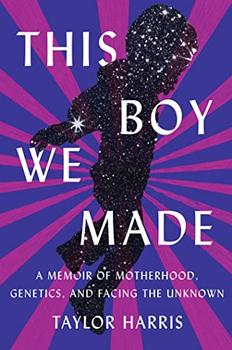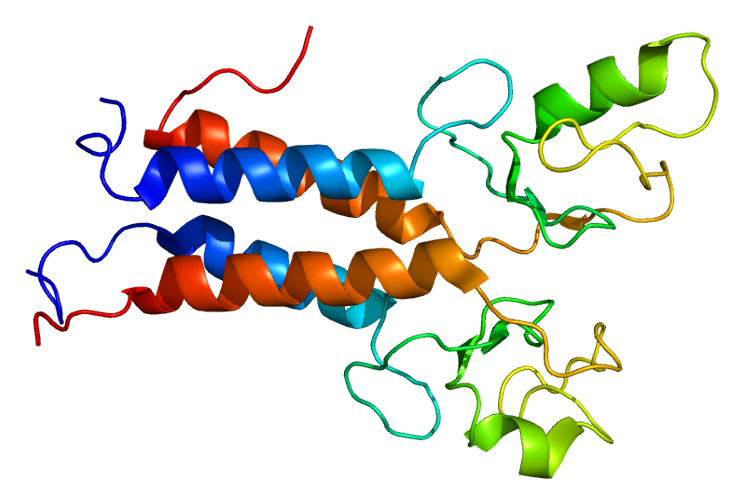Summary | Excerpt | Reviews | Beyond the Book | Read-Alikes | Genres & Themes | Author Bio

Critics' Opinion:
Readers' Opinion:
First Published:
Jan 2022, 272 pages
Paperback:
Jan 2023, 272 pages
 Book Reviewed by:
Book Reviewed by:
Rebecca Foster
Buy This Book
This article relates to This Boy We Made
 In This Boy We Made, author Taylor Harris finds out that she has a BRCA2 genetic mutation that puts her at about a 50% higher than average risk of developing breast cancer, and decides to have a prophylactic double mastectomy.
In This Boy We Made, author Taylor Harris finds out that she has a BRCA2 genetic mutation that puts her at about a 50% higher than average risk of developing breast cancer, and decides to have a prophylactic double mastectomy.
A mutation in the BRCA1 or BRCA2 gene is associated with a higher risk of certain types of cancer. Dr. Mary-Claire King's work from the 1970s onwards was responsible for discovering the BRCA1 gene's connection to hereditary breast cancer. In 2014, she was given the Lasker–Koshland Special Achievement Award in Medical Science for this work. Her findings led to the development of genetic testing for breast cancer risk based on BRCA1 and BRCA2, after their locations on chromosomes 13 and 17 were identified.
In 1998, the company Myriad Genetics took out patents on the BRCA1 and BRCA2 genes, and began to offer testing for cancer risk, but in 2013 the U.S. Supreme Court ruled that naturally occurring genes cannot be patented. For this reason, while Myriad Genetics still provides a large portion of the BRCA testing done in the United States, it no longer has exclusive control over the market.
Testing involves DNA analysis of a blood or saliva sample to look for mutations in the two genes. A mutation makes a number of additional types of cancer more likely, too, including melanoma, ovarian cancer, pancreatic cancer and prostate cancer. Personal history of cancer diagnosed before age 50 and/or a family history (one or more relatives who have had the same type of cancer) are the usual reasons for getting tested. People of Ashkenazi Jewish descent have a much higher risk, with 1 in 40 having a faulty BRCA gene, as opposed to 1 in 300 in the general population. There is a 50% chance of passing on a BRCA mutation to one's children.
Prophylactic mastectomy (removal of the breasts), or oophorectomy (removal of the ovaries), in response to a positive BRCA genetic mutation test result is known as a risk-reducing procedure. According to the Mayo Clinic, "For women with the BRCA1 or BRCA2 mutation, prophylactic mastectomy reduces the risk of developing breast cancer by 90 to 95 percent." The surgery might not be able to remove all breast tissue, so the chance of developing cancer is not reduced to zero. However, exercise and healthy nutrition, such as the Mediterranean diet, can also lower the risk. For those not choosing a preventative surgery, there are some medications, such as Tamoxifen, that can reduce estrogen production or block its action, cutting breast cancer risk by around 50%.
Recommended further reading: Eating Pomegranates: A Memoir of Mothers, Daughters, and the BRCA Gene by Sarah Gabriel (2009) and this list put together by the University of California, San Francisco's Helen Diller Family Comprehensive Cancer Center.
Complex structure of the BRCA1 RING domain and BARD1 RING domain, based on PyMOL rendering and created by Emw (CC BY-SA 3.0)
Filed under Medicine, Science and Tech
![]() This "beyond the book article" relates to This Boy We Made. It originally ran in February 2022 and has been updated for the
January 2023 paperback edition.
Go to magazine.
This "beyond the book article" relates to This Boy We Made. It originally ran in February 2022 and has been updated for the
January 2023 paperback edition.
Go to magazine.




We should have a great fewer disputes in the world if words were taken for what they are
Click Here to find out who said this, as well as discovering other famous literary quotes!
Your guide toexceptional books
BookBrowse seeks out and recommends the best in contemporary fiction and nonfiction—books that not only engage and entertain but also deepen our understanding of ourselves and the world around us.